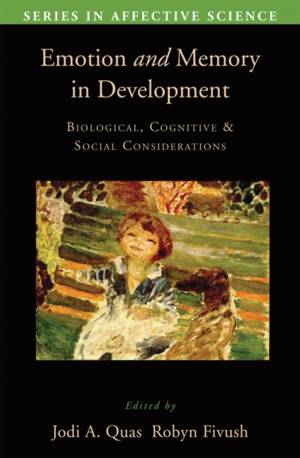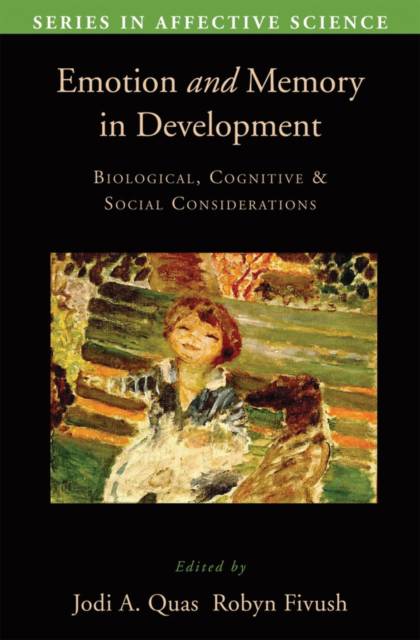
Bedankt voor het vertrouwen het afgelopen jaar! Om jou te bedanken bieden we GRATIS verzending (in België) aan op alles gedurende de hele maand januari.
- Afhalen na 1 uur in een winkel met voorraad
- Gratis thuislevering in België vanaf € 30
- Ruim aanbod met 7 miljoen producten
Bedankt voor het vertrouwen het afgelopen jaar! Om jou te bedanken bieden we GRATIS verzending (in België) aan op alles gedurende de hele maand januari.
- Afhalen na 1 uur in een winkel met voorraad
- Gratis thuislevering in België vanaf € 30
- Ruim aanbod met 7 miljoen producten
Zoeken
€ 140,45
+ 280 punten
Omschrijving
The question of how well children recall and can discuss emotional experiences is one with numerous theoretical and applied implications. Theoretically, the role of emotions generally and emotional distress specifically in children's emerging cognitive abilities has implications for understanding how children attend to and process information, how children react to emotional information, and how that information affects their development and functioning over time. Practically speaking, increasing numbers of children have been involved in legal settings as victims or witnesses to violence, highlighting the need to determine the extent to which children's eyewitness reports of traumatic experiences are accurate and complete. In clinical contexts, the ability to narrate emotional events is emerging as a significant predictor of psychological outcomes. How children learn to describe emotional experiences and the extent to which they can do so coherently thus has important implications for clinical interventions.
Specificaties
Betrokkenen
- Auteur(s):
- Uitgeverij:
Inhoud
- Aantal bladzijden:
- 448
- Taal:
- Engels
- Reeks:
Eigenschappen
- Productcode (EAN):
- 9780195326932
- Verschijningsdatum:
- 9/04/2009
- Uitvoering:
- Hardcover
- Formaat:
- Ongenaaid / garenloos gebonden
- Afmetingen:
- 165 mm x 239 mm
- Gewicht:
- 771 g

Alleen bij Standaard Boekhandel
+ 280 punten op je klantenkaart van Standaard Boekhandel
Beoordelingen
We publiceren alleen reviews die voldoen aan de voorwaarden voor reviews. Bekijk onze voorwaarden voor reviews.









